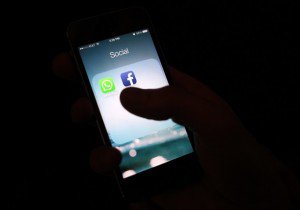Speaker Pantaleon Alvarez III wants a congressional inquiry into the alleged failure of social media networks “to provide an effective method or system” to authenticate accounts registered to them, citing the need to protect social media users and curb abuses such as online identity theft.
Alvarez also filed a bill that seeks to regulate social media by “by mandating the social media companies ie, Facebook, Twitter, Instagram, etc. to reasonably verify the identity of user applicants before they are allowed to open account.”
Social media regulation has been a contentious issue, with debates ranging from suppressing free speech to the lack of online accountability.
READ: Schools teach how to distinguish between real and fake news
However, some governments are trying to adopt strict online measures while others have banned social media providers or blocked website altogether.
House Bill No. 5021 filed by Alvarez will also be known as the “Social Media Regulation Act of 2017.”
It defines the social media network as social media venues that include Facebook, Twitter, LinkedIn, Pinterest, Instagram, “and the likes (sic)” as well as email accounts with Yahoo, Google, and other internet sites.
The Alvarez bill imposes penalties for the social media providers’ failure to comply with the verification requirement and punishment for those who engage in identity theft.
Aside from mandating social media companies to verify the identity of their subscribers, the bill prohibits anyone “from opening an account for his online presence using someone else’s identity and presenting himself to the online world as that person whom he is not.”
READ: Pinoys top social media users, according to study
Violators will be punished with imprisonment of six to 12 years and fined from P30,000 to P50,000.
In House Resolution No. 777 that calls for the congressional inquiry, Alvarez said that spurious social media accounts are often used in illegal activities as well as to “malign or discredit the real person they purport to be… taking advantage of the anonymity provided by the internet.”
Alvarez cited statistics from the Philippine National Police (PNP) Anti Cybercrime Group that there had been nearly 2,000 cybercrime complaints in 2016.
Of the figure, 494 were complaints for online libel, 444 were online scamming, and the rest consisted of online threats, identity theft, and violations of the anti-photo and video voyeurism act.
A small percentage of the complaints have been filed with the prosecutor’s office while 51.44 percent remained under investigation. CBB
